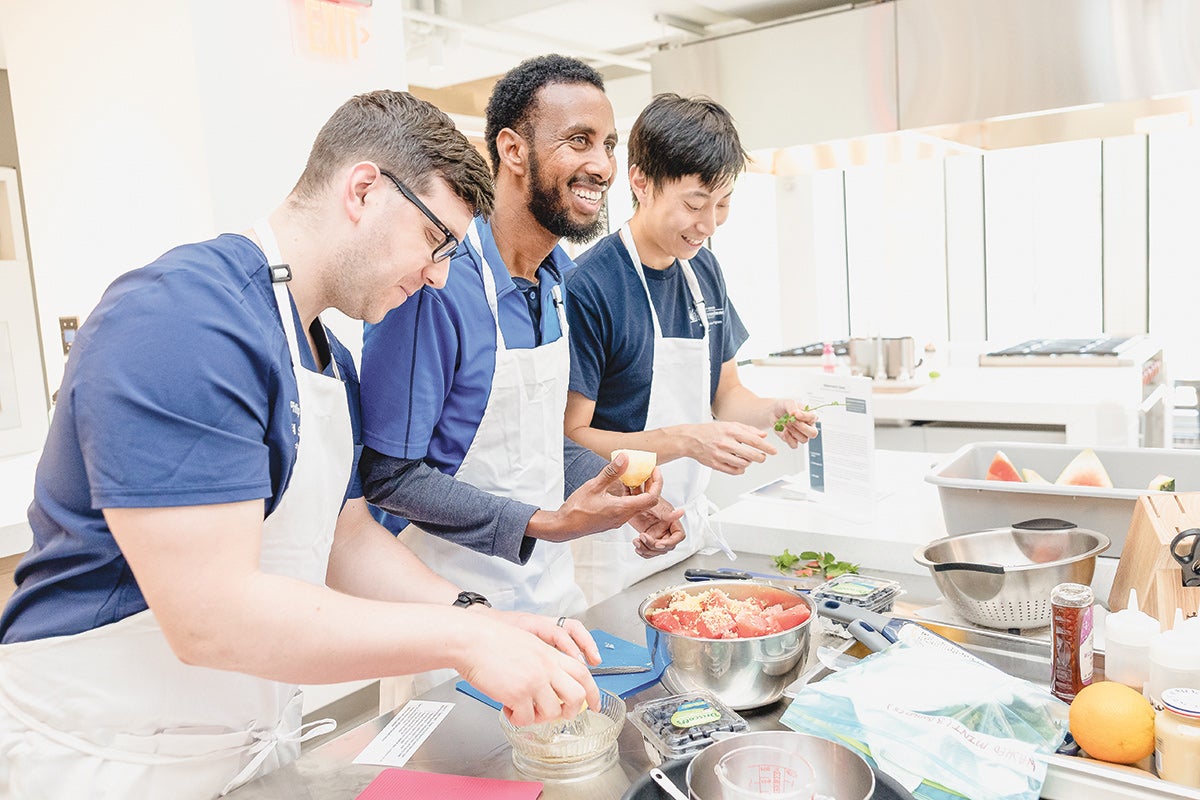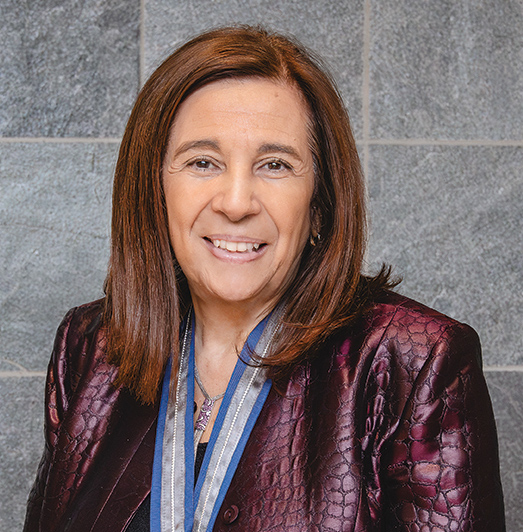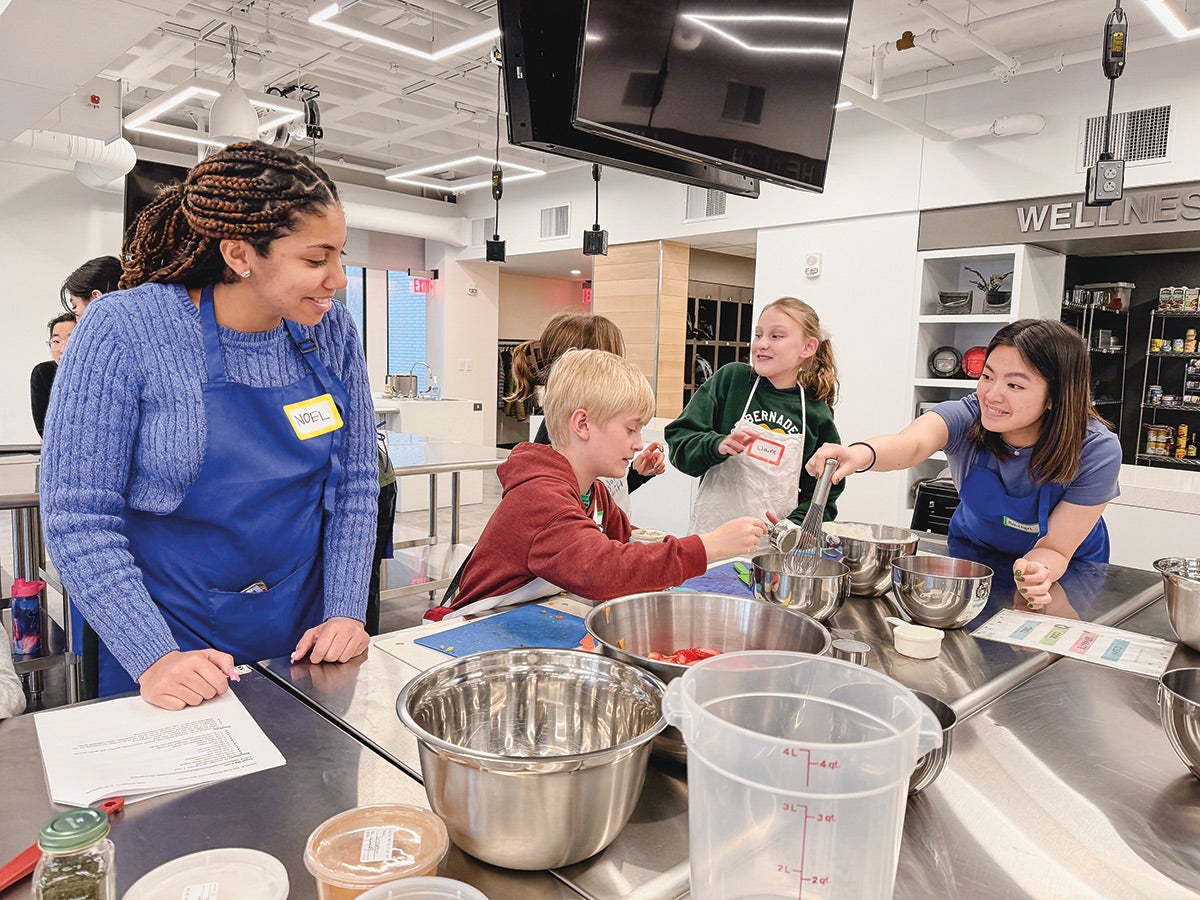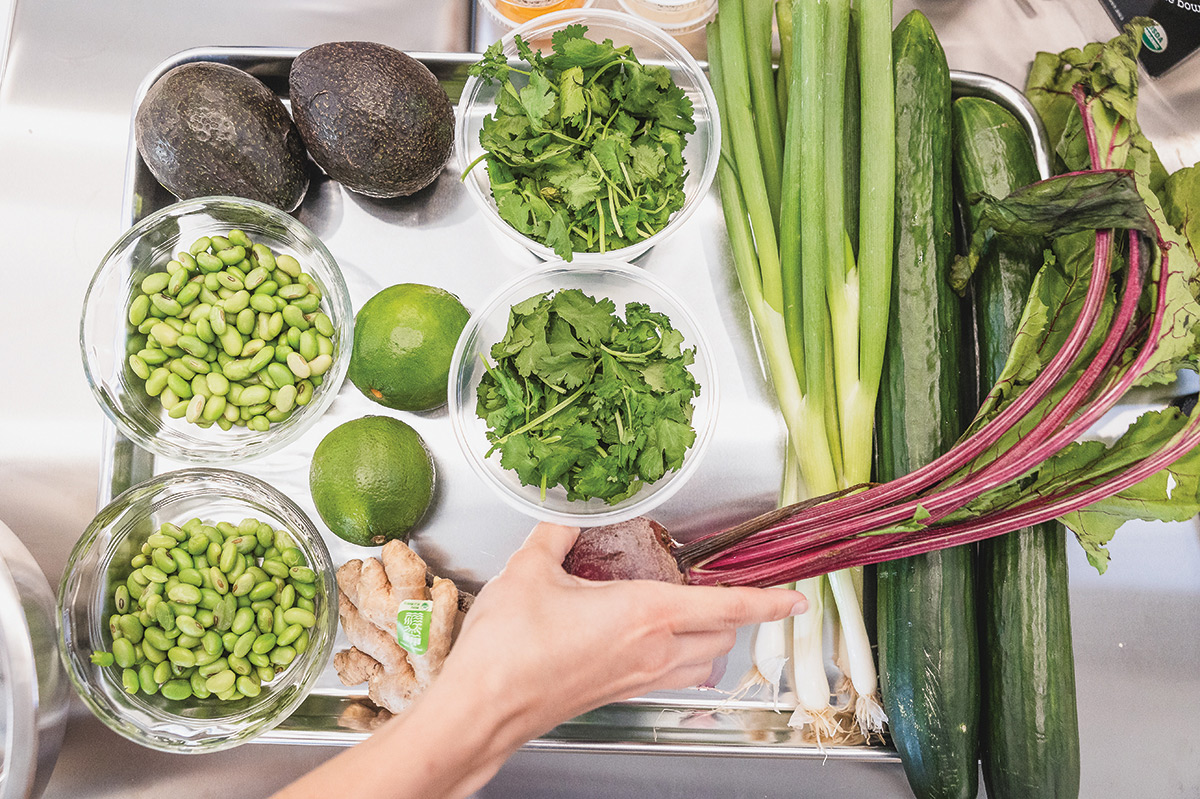lens
Food Is Medicine
When cooking becomes a clinical skill
 Photo by Matt ShifflerThe School of Medicine's state-of-the-art teaching kitchen is at the heart of its culinary medicine curriculum, providing future physicians with hands-on nutrition education. This photo was taken after the kitchen opened in 2023.
Photo by Matt ShifflerThe School of Medicine's state-of-the-art teaching kitchen is at the heart of its culinary medicine curriculum, providing future physicians with hands-on nutrition education. This photo was taken after the kitchen opened in 2023.Twice a month, students at Case Western Reserve University's School of Medicine trade their white coats for aprons and step into a bustling, modern teaching kitchen.
As they peel potatoes, slice zucchini and prepare simple meals, they get nutrition education and hands-on experience with healthy, affordable recipes—skills they'll one day pass on to patients. It's all part of an initiative to train future physicians to view food as a tool for disease prevention and healing.
 Hope Barkoukis, chair of the Department of Nutrition at CWRU’s School of Medicine.
Hope Barkoukis, chair of the Department of Nutrition at CWRU’s School of Medicine.
CWRU is among the few medical schools in the country incorporating culinary medicine—a fusion of evidence-based nutrition science and practical cooking skills—into its programming, said Hope Barkoukis, PhD, chair of the medical school's Department of Nutrition.
She leads the programming, offered as an extracurricular activity within the school's Jack, Joseph and Morton Mandel Wellness and Preventive Care Pathway, which Barkoukis launched in 2016 and now co-leads. As one of nine pathways for medical students, it focuses on culinary and lifestyle medicine, emphasizing diet, exercise and other modifications before turning to medication to manage chronic conditions.
This approach underscores the critical role of diet in preventing and managing chronic conditions including diabetes, hypertension and heart disease. "It's long overdue to integrate simple food and cooking experiences into the healthcare landscape," said Barkoukis (GRS '79, '97, nutrition). "And it starts with medical students."
In 2023, the medical school opened its state-of-the-art teaching kitchen, providing hands-on culinary training for medical students, undergrad and graduate students across CWRU.
 Undergraduate, graduate and medical students have all helped lead the School of Medicine's Diabetes Inspired Culinary Education program, teaching young participants to better manage their type 1 diabetes.
Undergraduate, graduate and medical students have all helped lead the School of Medicine's Diabetes Inspired Culinary Education program, teaching young participants to better manage their type 1 diabetes.
The 2,300-square-foot facility—which Barkoukis believes is the largest of its kind in the country—features workstations for 40 students, a walk-in pantry, a laundry room and a dishwashing area. Here, students learn to modify recipes for different dietary needs, deliver effective nutrition advice to patients and prepare nutritious meals on a budget.
"One of the biggest factors in well-being and reducing the risk of chronic disease is our dietary patterns," Barkoukis said "By gaining these experiences now, future MDs will pass on the importance of lifestyle choices to their patients."
Since its launch, the Mandel Wellness Pathway has grown from a handful of participants to more than 200 medical students. And other institutions are eyeing it as a model.
The medical school now aims to further expand its impact. The teaching kitchen is outfitted with audiovisual technology that enables livestreaming and the creation of training modules, extending learning opportunities beyond the classroom.
As demand grows for initiatives focused on food as medicine, the CWRU program stands as a model for integrating practical nutrition training into healthcare—one meal at a time.
In the United States, poor diet is the leading risk factor for early death, with
93%
of adults experiencing suboptimal cardiometabolic health, according to the American Medical Association.
Additionally,
18 MILLION
people face food insecurity, which contributes to diet-related chronic diseases in
60%
of adults, according to the U.S. Department of Health and Human Services.

Initiatives to Fuel Better Health
Case Western Reserve University's School of Medicine has launched several Food is Medicine programs to benefit Greater Cleveland residents Including the following two programs:
Nourishing Tomorrow
What: CWRU researchers—in partnership with the Greater Cleveland Food Bank and two local hospital systems—are providing health and nutrition support for 360 food-insecure pregnant women with a new National Institutes of Health grant.
Why: Pregnant individuals faced with food insecurity are twice as likely to deliver premature babies, researchers said.
The study: Programs exist to provide medically tailored groceries (MTG) selected by nutritional professionals. But they may require transportation for grocery pick-ups, tools to prepare meals and basic food-preparation skills. Researchers are offering three MTG programs ranging from one requiring participants to pick up their groceries to one combining home delivery with personalized culinary education—and will assess whether the options result in healthier babies.
Diabetes Inspired Culinary Education (DICE)
What: An intervention to help 8- to 14-year-old youth with high blood-glucose levels better manage their type 1 diabetes (T1D). It provides 10 weekly lessons for families co-taught by registered dietitians and students at CWRU's teaching kitchen. The program is funded by the American Diabetes Association; partners include local children's hospitals and nonprofits.
The program: Children gain cooking skills through hands-on food preparation while learning about nutrition and T1D management in fun, practical ways. Caregivers meet separately with the educators to discuss challenges and explore solutions. Families then reunite for a shared meal they've helped prepare and that reinforces program lessons.
Why: Managing T1D often takes a significant toll on the physical and emotional well-being of a family. DICE aims to provide needed support for the whole family.
Elaine Borawski, PhD (GRS ’89, ’92, sociology), directs the Nourishing Tomorrow study and is the Angela Bowen Williamson Professor of Community Nutrition at the medical school. Catherine Rogers McManus, PhD (GRS ’11, nutrition), is the DICE program leader and an assistant professor at the school.





